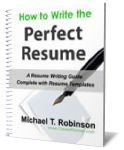"Special Education Teacher -Secondary School"
Job Description - Part 1 - Duties and Tasks
Basic Job Description:
Teach secondary school subjects to educationally and physically handicapped students. Includes teachers who specialize and work with audibly and visually handicapped students and those who teach basic academic and life processes skills to the mentally impaired.
Part 1
Duties / Tasks
Part 2
Activities
Part 3
Skills
Part 4
Abilities
Part 5
Knowledge
Job Duties and Tasks for: "Special Education Teacher -Secondary School"
1) Prepare, administer, and grade tests and assignments to evaluate students' progress.
2) Provide additional instruction in vocational areas.
3) Attend staff meetings and serve on committees, as required.
4) Select, store, order, issue, and inventory classroom equipment, materials, and supplies.
5) Prepare materials and classrooms for class activities.
6) Teach personal development skills such as goal setting, independence, and self-advocacy.
7) Meet with other professionals to discuss individual students' needs and progress.
8) Coordinate placement of students with special needs into mainstream classes.
| Thanks for visiting CareerPlanner.com | ||

|
1) Use Career Testing to find the perfect career 2) Is your resume getting you enough interviews? |
 |

|
Thanks for visiting CareerPlanner.com 1) Use Career Testing to find the perfect career 2) Is your resume getting you enough interviews? |
 |
9) Maintain accurate and complete student records, and prepare reports on children and activities, as required by laws, district policies, and administrative regulations.
10) Teach socially acceptable behavior, employing techniques such as behavior modification and positive reinforcement.
11) Establish and enforce rules for behavior and policies and procedures to maintain order among students.
Is being a "Special Education Teacher -Secondary School" your very best career choice?
Our Career Interest Test will show you which careers match your interests.
Our Free Personality Test will show you which careers match your personality and why.
12) Confer with parents, administrators, testing specialists, social workers, and professionals to develop individual educational plans designed to promote students' educational, physical, and social development.
13) Instruct through lectures, discussions, and demonstrations in one or more subjects, such as English, mathematics, or social studies.
14) Employ special educational strategies and techniques during instruction to improve the development of sensory- and perceptual-motor skills, language, cognition, and memory.
15) Plan and conduct activities for a balanced program of instruction, demonstration, and work time that provides students with opportunities to observe, question, and investigate.
16) Prepare students for later grades by encouraging them to explore learning opportunities and to persevere with challenging tasks.
17) Establish clear objectives for all lessons, units, and projects and communicate those objectives to students.
18) Develop and implement strategies to meet the needs of students with a variety of handicapping conditions.
19) Modify the general education curriculum for special-needs students, based upon a variety of instructional techniques and technologies.
20) Confer with parents or guardians, other teachers, counselors, and administrators to resolve students' behavioral and academic problems.
21) Meet with parents and guardians to discuss their children's progress and to determine priorities for their children and their resource needs.
22) Guide and counsel students with adjustment or academic problems, or special academic interests.
23) Observe and evaluate students' performance, behavior, social development, and physical health.
24) Monitor teachers and teacher assistants to ensure that they adhere to inclusive special education program requirements.
25) Instruct students in daily living skills required for independent maintenance and self-sufficiency, such as hygiene, safety, and food preparation.
26) Meet with parents and guardians to provide guidance in using community resources and to teach skills for dealing with students' impairments.
27) Prepare objectives and outlines for courses of study, following curriculum guidelines or requirements of states and schools.
28) Confer with other staff members to plan and schedule lessons promoting learning, following approved curricula.
29) Instruct and monitor students in the use and care of equipment and materials to prevent injuries and damage.
30) Use computers, audio-visual aids, and other equipment and materials to supplement presentations.
31) Administer standardized ability and achievement tests and interpret results to determine students' strengths and areas of need.
32) Collaborate with other teachers and administrators in the development, evaluation, and revision of secondary school programs.
33) Prepare for assigned classes and show written evidence of preparation upon request of immediate supervisors.
34) Attend professional meetings, educational conferences, and teacher training workshops to maintain and improve professional competence.
35) Plan and supervise class projects, field trips, visits by guest speakers, or other experiential activities, and guide students in learning from those activities.
36) Perform administrative duties such as assisting in school libraries, hall and cafeteria monitoring, and bus loading and unloading.
37) Provide assistive devices, supportive technology, and assistance accessing facilities such as restrooms.
38) Visit schools to tutor students with sensory impairments and to consult with teachers regarding students' special needs.
39) Provide interpretation and transcription of regular classroom materials through Braille and sign language.
40) Sponsor extracurricular activities such as clubs, student organizations, and academic contests.
Job Description for "Special Education Teacher -Secondary School" continued here...
Part 1
Duties / Tasks
Part 2
Activities
Part 3
Skills
Part 4
Abilities
Part 5
Knowledge
"Special Education Teacher -Secondary School" Holland / RIASEC Career Code: NA SOC: 25-2054.00
Click here for "Special Education Teacher -Secondary School" Jobs
Our Most Popular Career Planning Tools







